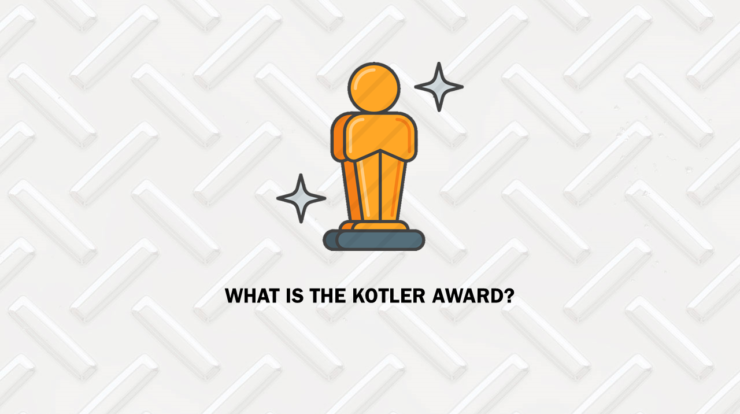
If you have not yet heard, Indra Nooyi – PepsiCo’s first female CEO, is stepping down. Indra Nooyi is set to step down from her role as the Pepsi CEO in October after 12 years of being at the helm of the soft drinks giant.
The announcement was made on Monday, and there has already been a lot of buzz, mostly centered on the impact this will have on the number of women running Fortune 500 companies. Her replacement is none other than Ramon Laguarta, PepsiCo’s president. Hello Awin
Indra Nooyi’s track record at Pepsi has been impressive, driving the company’s revenues by 80% in her role as the Pepsi CEO. Before becoming the CEO, Indra Nooyi first joined Pepsi as a Senior Vice President of Strategic Planning.
Her successor, on the other hand, is a former marketer, and this is where I ask and ponder over this question:
Do marketers make better CEOs?
Before engaging in this debate, you need to take note of two key bits of information:
- Pepsi is currently facing a decline in the sale of its signature beverages, particularly in North America
- Pepsi is shifting its focus to healthier alternatives
As recent studies have shown, marketers have increasingly demonstrated their suitability for the CEO post. But what does Pepsi stand to gain by appointing a former marketer, especially as it faces the aforementioned challenges?
I will quickly take you through what recent studies indicate, as below.
Ramon Laguarta – the new Pepsi CEO
Ramon Laguarta has been lauded as the right person to take over as the Pepsi CEO and to build on Pepsi’s success. In the words of Indra Nooyi herself, Ramon Laguarta is an excellent executive and boasts a long and proven capacity for growing businesses. According to the outgoing Pepsi CEO,
“He has a deep understanding of the changing customer preferences and other critical trends unfolding around the world, and he has demonstrated that he knows how to navigate them successfully.”
– Indra Nooyi on Ramon Laguarta
But who is Ramon Laguarta?
Laguarta has been with PepsiCo for 22 years. He took over the role of the company’s global President in 2017, where his main responsibilities included public policy, overseeing operations, and government affairs.
However, before joining PepsiCo, Laguarta was the marketing vice president for Spain Snacks.
It is perhaps his previous experience in marketing that makes him such an attractive option to take over as CEO, especially in the light of the current issues that the new CEO will need to tackle.
Let us review some of these issues below.
The major challenges facing Pepsi
The challenges facing PepsiCo illuminate why more and more companies will need to consider a CEO with a marketing background. For instance, let’s first consider the fact that under Indra Nooyi, Pepsi was very strong with an impressive growth in net revenues from $35 billion in 2006 to $63 billion in 2017.
However, there have been numerous changes in consumer habits and preferences which have presented a key challenge to the brand.
Consider the following changes for instance:
There is an undeniable shift towards healthier alternatives and an evident change in consumer habits.
The new CEO- therefore, needs to be effective in establishing a balance between the introduction of – and effective marketing – of these healthier alternatives and spending on the company’s signature beverages.
Going back to the beginning of this year, Pepsi had announced that it would further pump resources on marketing its fizzy drinks such as Gatorade and Pepsi Cola. This announcement followed the decline of its drinks division which constitutes a third of its business in the United States.
At the end of the fourth quarter, the shifts in consumer tastes saw the company report its worst performance with sales in its drinks division dropping by 3 percent in the United States.
Additionally, Pepsi still faces the challenge posed by its major competitor – Coca-Cola.
In fact, second-quarter results indicate an improvement in the sales division, which has been linked to its ability to compete favorably with Coca-Cola in both pricing and marketing.
It is therefore evident that the company faces great marketing challenges, which demands for a CEO with a strong marketing background.
Why Marketers make the best CEOs
Now, I went through a lot of current literature about this and the debate is still on about whether or not marketers have what it takes to take on top roles such as Pepsi CEO. Yet, there is a mounting literature which suggests that today’s marketers not only have what it takes but are also uniquely positioned to take over CEO positions.
Marketing seems to have come full circle when you compare the environment that we have today with that in the 1990s. Back then, many CEOs had a marketing background.
In fact, it was only during the following decade when the focus shifted from price, promotion, and place, to predominantly ‘product’. This coincided with the dramatic rise in technology and tech founders like Steve Jobs rose to the roles of CEO by virtue of their ability to develop superior products.
However, things have changed dramatically across industries. Specifically, regardless of the industry, the explosion of technology and the innovation that has come with it has diluted the magnitude of the challenge of developing new products from scratch.
New CEOs now have a much bigger problem; knowing exactly what people want.
The new challenges revolve around marketing. Companies are being forced to reevaluate how well they know their audiences, their buyers, and whether or not they can develop products that fit the needs of these buyers. The challenge is no longer whether or not they can build a superior product, because it is relatively easy in the modern era to develop great products.
Therefore, new CEOs and businesses will be judged based on how well they understand their audience, how well and effectively they are able to figure out what the audience wants, and how they can translate what the audience wants in the development of products which meet the needs of the consumers.
Great companies will, therefore, be those that can effectively build a business around these key areas.
How has this changed how marketers are viewed
A survey conducted in 2012 by the Fournaise Group revealed that approximately 90% of CEOs trusted the opinions of their CIOs and CFOs, while 80% distrusted the work done by marketers.
However, today more and more brand marketers are taking the role of CEOs, including Steve Easterbrook – the CEO of McDonald’s, and Albern Murty – the CEO of Digi, a Malaysian Telecommunication giant. This demonstrates that an increasing number of companies are appreciating the significance of understanding their customers.
Furthermore, new research now shows that roughly 1 in every 5 FTSE 100 CEOs have a marketing background.
This is based on a 2017 study by Heidrick & Struggles, which indicated that marketing was now the second most common background for the CEO position, behind finance. As the business environment continues to change, marketers are bound to rise to the top.
Conclusion – Why a marketer will make a great Pepsi CEO
In closing I would say, Ramon Laguarta’s role as the new Pepsi CEO coincides with a notable demand for top executives who understand their customers, and who are well versed with the intricacies of marketing.
While he will be another in an expanding line of marketers taking over the CEO role in major companies, there is clearly a need for a marketer at the helm of the company to effectively respond to the marketing challenges that now affect the company.
Specifically, Ramon Laguarta’s background in marketing makes him an excellent choice to navigate the challenges associated with changing customer demands and preferences both in the development of healthier alternatives, as well as in the promotion and marketing of the company’s signature brands.





